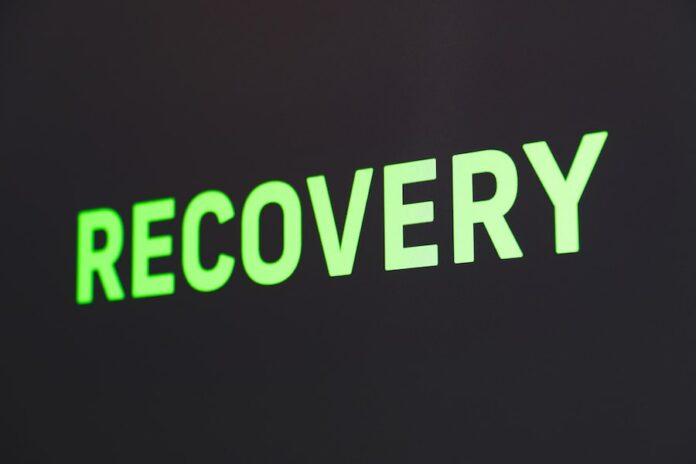
Addiction recovery is possible. To the point where there are so many different approaches. This guide will go over what options are available for those who need them.
It’s important for someone with an addiction to find a North Carolina drug rehab center that fits their treatment plan. Those with this kind of struggle have their own unique needs for treatment. There is no one-size-fits-all solution, hence the various options.
Which one fits you best? Keep reading and find out if one of these therapies is a great fit for your addiction recovery.
Cognitive-Behavioral Therapy (CBT)
First is Cognitive-Behavioral Therapy (or CBT). This is the kind of therapy that will focus on one’s thoughts, feelings, and behaviors. It’s one of the most common types of therapy offered.
CBT is designed to help people understand what triggers have led to their addiction. A therapist will help you come up with coping strategies to help you avoid such triggers from happening. Keep in mind that practicing these strategies will be an ongoing thing.
Even after you have recovered from addiction, a relapse can still happen. That’s why it is important to learn how to make informed decisions. For example, if you’re in an environment where alcohol or drug use is present, you can leave if you believe it’s the best option.
Motivational Interviewing
Another common therapy method is motivational interviewing (or MI). This is used on those who may feel ambivalent about making changes in their behavior. The approach with this type of therapy includes empathy and non-confrontational approaches.
This is ensured to help individuals understand the benefits of behavioral changes. This way, they can be able to overcome the barriers that may come with the territory of addiction recovery. A therapist or counselor can ask a series of questions in an effort to help someone get over their addiction.
These can include open-ended questions to help find out more about an addict’s life and how they might have developed it. At the same time, the counselor will find their strengths and abilities in an effort to help create positive affirmations about who they are and how it ties into recovery.
Reflective listening is also a tool for motivational interviewing as the counselor will be listening to their client and repeating what they said in an effort to solidify engagement.
This can be useful in addiction treatment, especially in some cases where motivation may not be as present.
Contingency Management
This type of therapy uses rewards and incentives for the purpose of motivating individuals to make behavioral changes. It’s no secret that no one can say no to rewards and incentives if they take a specific action. This is the kind of treatment that will be useful for an addict that is trying to get sober but has a hard time doing so.
For example, they may fail drug tests that are sanctioned by their employer or court order. If they pass a drug test, they can receive an incentive for doing so. They can also receive a reward for attending regular therapy sessions.
Depending on a person’s treatment plan, there can be certain milestones that can be set. If they meet the milestone, they are rewarded for their efforts. The more this goes on, the more it can motivate a person to get clean.
As such, there is no greater reward or incentive than a much healthier life after addiction. The amount of support you receive during your treatment will be outstanding. It’s an ongoing reward that you should never take for granted.
If anything, living a life free from addiction is what we strive for. It’s the ultimate reward. No matter what kind of therapy a recovering addict uses, there is a bit of contingency management included.
Dialectical Behavior Therapy
Dialectical Behavior Therapy, or DBT, uses elements of CBT. Throw in the practice of mindfulness, and it might be the perfect form of therapy for addiction recovery yet.
This teaches a person to regulate their emotions while improving their relationship with others. These are two key goals for a recovering addict to achieve. Especially when improving relationships can lead to growth in their support system.
Mindfulness is designed to help someone become aware of the present moment. They know that they may be feeling a certain emotion. At the same time, it helps them calm down and ground themselves.
This can also be useful in keeping the instances of relapse low. Mindfulness should be included regardless of what kind of therapy is being used. That’s because it can be an excellent tool that will allow you to maintain control over your thoughts and feelings.
Group therapy
This is considered part of the therapy process for recovering addicts. This, along with individual counseling, are often a staple in almost any treatment plan. Group therapy is great for those who are comfortable sharing their struggles with other people who are dealing with the same addictions.
They tell stories about themselves, how they developed their addiction, and the struggles that occurred prior to getting help. You can provide them with empathy and understanding.
At the same time, you can give them the support they need. If there is one key thing that one person wants nothing more, it’s all kinds of support in their effort to recover from their addiction.
Final Thoughts
Addiction recovery can be successful no matter what type of therapy fits you best. It’s important that you consider which option will be great for your current needs and situation. The ultimate goal is to live life without dealing with addiction.
It’s important to trust the process and stick to your treatment plan. There is a great reward at the end of the path. And it will be the best one you have ever received.
Don’t risk one more day of your life with addiction. Get the help you need now and see which therapy option is best for you.

